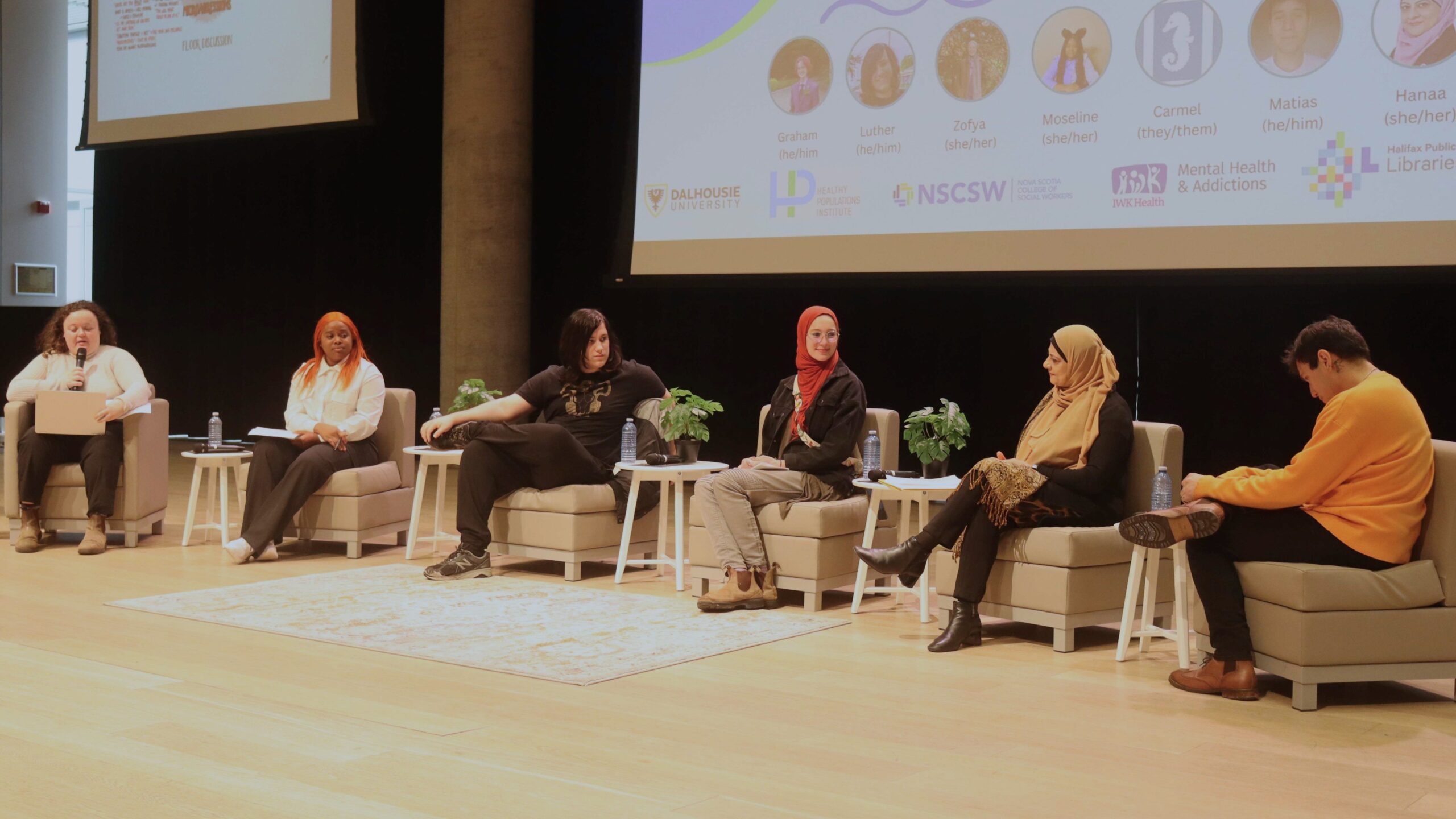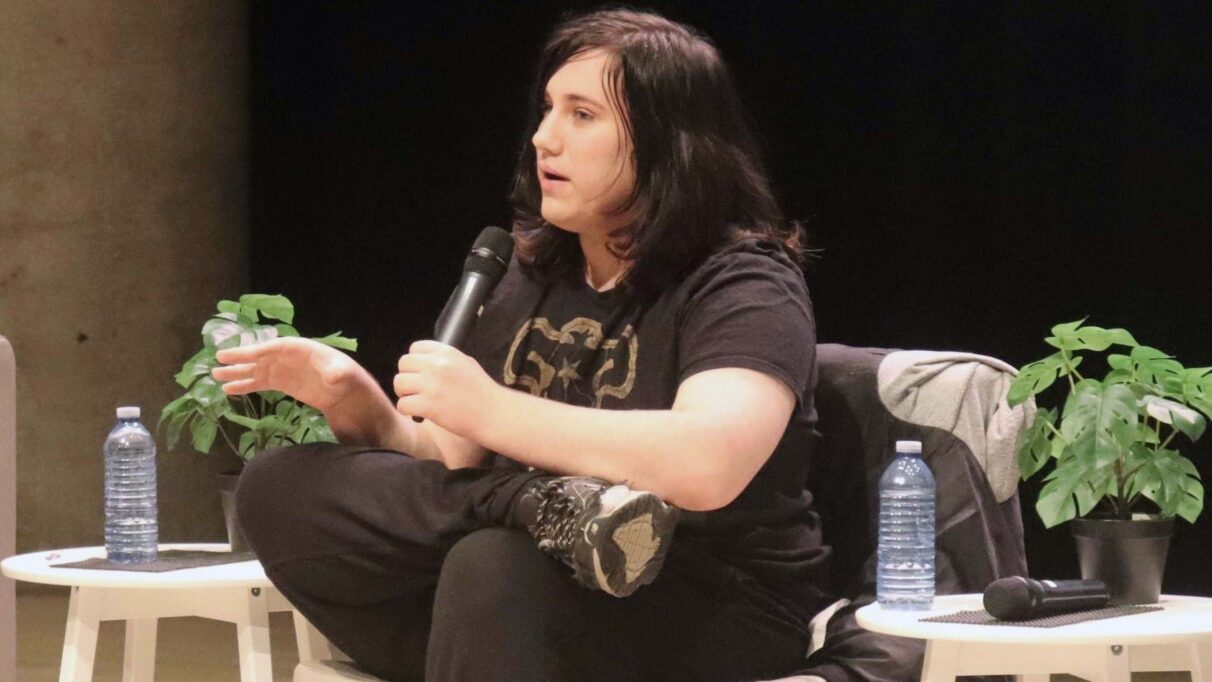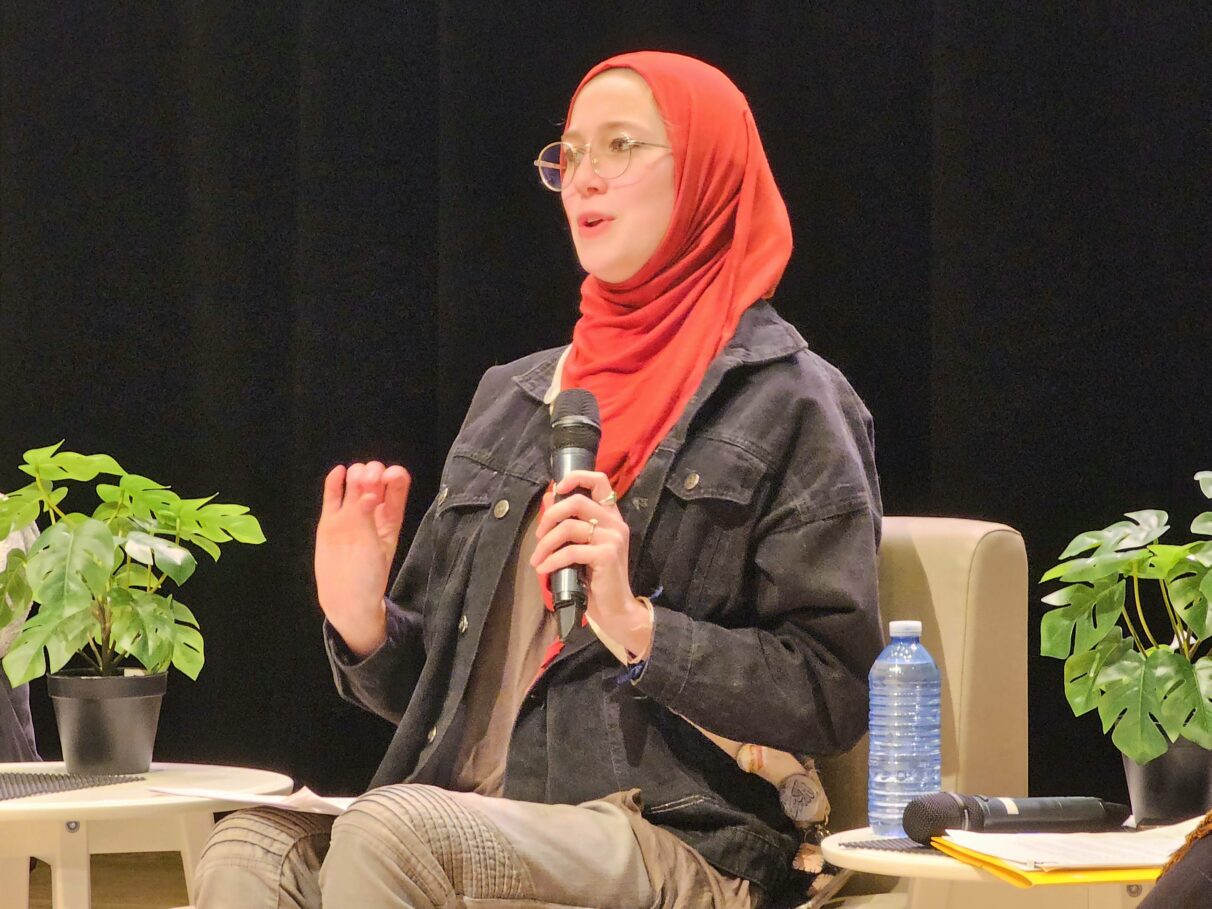Panel advocates for mental health supports
Panellists at National Child Day event urge greater mental health education in schools

caption
Panellists at the National Child Day event are introduced at Halifax Central Library on Monday.Luther Stronach has struggled a lot with mental illness and anxiety. He says he has attended five to six schools, with only one opportunity to take a course on mental health. He feels it’s still a taboo subject in schools.
“I’m not afraid of talking about it,” said Stronach. “The big reason I’m doing this is because I can speak about it when somebody else can’t, because they’re afraid.”
Stronach was one of seven people advocating better mental health support for young people in schools at the National Child Day event held at the Halifax Central Library on Monday.

caption
Luther Stronach speaks about mental health support for youth during the National Child Day panel on Monday.Monday was National Child Day in Canada, a day to celebrate and promote the human rights of children and youth. The Nova Scotia College of Social Workers partnered with the Healthy Populations Institute for a youth-focused event at the Halifax Central Library. This year’s theme was Inclusion for Every Child.
The event was composed of seven panellists, four youths and three adults, some of whom participated online. They identified key issues related to the April 2022 One Chance to Be a Child report created by Nova Scotia academics and community advocates and published by the Department of Pediatrics and Healthy Populations Institute at Dalhousie University, with the input of young people.
Attendee Hannah Beveridge, a research assistant at the Healthy Populations Institute, worked on projects related to the report. Beveridge said that “listening to youth voices so that their solutions can get implemented” is important.
The report is an assessment of child and youth well-being in Nova Scotia, which focuses on security, health, happiness and belonging. It also features recommendations and suggestions related to providing child and youth well-being.
“We all feel like we need to belong,” said Zofya Handley Armstrong, a high school student and panellist at the event.

caption
Zofya Handley Armstrong speaking against microaggressions experienced by minority youth during the National Child Day panel.During the event, panellists urged adults to provide stability and safety for 2SLGBTQIA+ children and youth, as well as better mental health support for young people in schools. For some of the panellists, mental health issues among the youth is caused by feelings of social isolation and insufficient access to education among those whose first language is not English.
Some said poor nutrition and poverty also damage children’s mental health.
“When it comes to youth, you get to see so many limitations on their rights,” said attendee Jeanine Kazungu.
Kazungu works for the Phoenix Youth Program, an organization supporting youth between ages of 11 and 24 across multiple locations in Halifax.
“As adults, coming here, being here, learning directly from the youth, and even the people that work with the youth, it gives us that idea of how we can actually respect the rights of a child,” she said.
Armstrong said minority youth often experience unsolicited comments about their culture.
Armstrong cited her own experience of intrusive questions and persistent comments regarding her culture and religion. For Armstrong, such actions perpetuate a feeling of otherness and lack of acceptance into the culture. As a panellist, she called for a need to take action as individuals and educate youth on prejudices against minorities.
“Microaggressions take away from that feeling of welcoming. They make you feel excluded and out of broader culture or whatever group,” said Armstrong.
About the author
Victoria Brzezinski-Szadzianis
Victoria is a Franco-Polish student. She moved to Halifax to study journalism at King's. She's in her fourth year of the BJH program.
